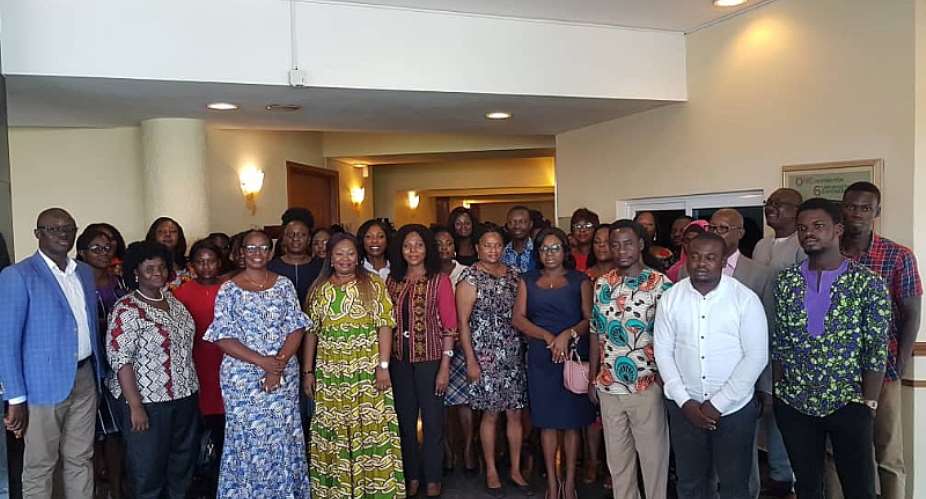Mrs Clara Beeri Kasser-Tee, Head of Chambers Kasser Law Firm, and a lecturer at GIMPA has said, women needed to be empowered to help bring the desired change in the fight against corruption.
She said there must be a system whereby women would feel free to talk about their concerns.
According to her, women are mostly affected by corruption so they must be actively involved in its fight.
"Women and girls are among the most affected, not least because they account for the largest proportion of people living in poverty, and because corruption exacerbates existing inequalities as a result of asymmetric power relationships,” she explained.
She said this at forum organised by Ghana Anti-Corruption Coalition (GACC) with support from United Nations Development Programme (UNDP) on the Role of Women in the fight against Corruption in Accra.
Citing the findings of a UNDP research, in 2012, Mrs Beauty Emefa Narteh, Executive Secretary, GACC, said, about 70% of women, in especially developing countries, responded that corruption had prevented their access to public goods and services.
Sex, they said, was demanded from them as bribes, thus sexualising their encounters with corruption, according to another research conducted by Hossain, Musembi and Hughes in 2010.
The research also found out that poor women’s dependence on public services meant that they were more vulnerable to the effects of corruption than men
She added that, though women constituted half of the world’s population, they were the least engaged in discussions on corruption, the most pressing issues to development and social justice.
She noted that, equality and equity to allow for a greater understanding of the links between gender dimensions and corruption.
It also hampered development and affected the enforcement of human rights, particularly, of the vulnerable including women and girls
Mrs Nartey said corruption was a complex and multi-dimensional phenomenon that affected the essential principles of democracy and rule of law.
Nana Teiba Chinbuah, Head of Governance, UNDP, said anti-corruption had been a priority on the good governance agenda because corruption impacted negatively on the development of a country.
It erodes confidence and trust in the public sector, threatening economies by undermining fair competition and discouraging investment and trade,” she said.
“It prevents social inclusion, promotes inequality, inhibits prosperity, reduce resources for poverty reduction (as resources for development are diverted) and deprives the poor and vulnerable of advancement opportunities”.
Nana Chinbuah said as women constituted the majority poor, they were affected by the corruption cycle for the disadvantaged, noting that poor women as primary caretakers of their families, depended more on public service, where corruption affected quality and access to services.





 We’ll no longer tolerate your empty, unwarranted attacks – TUC blasts Prof Adei
We’ll no longer tolerate your empty, unwarranted attacks – TUC blasts Prof Adei
 Bawumia donates GHc200,000 to support Madina fire victims
Bawumia donates GHc200,000 to support Madina fire victims
 IMF to disburse US$360million third tranche to Ghana without creditors MoU
IMF to disburse US$360million third tranche to Ghana without creditors MoU
 Truck owner share insights into train collision incident
Truck owner share insights into train collision incident
 Paramount chief of Bassare Traditional Area passes on
Paramount chief of Bassare Traditional Area passes on
 Two teachers in court over alleged illegal possession of BECE papers
Two teachers in court over alleged illegal possession of BECE papers
 Sunyani: Victim allegedly shot by traditional warriors appeals for justice
Sunyani: Victim allegedly shot by traditional warriors appeals for justice
 Mahama vows to scrap teacher licensure exams, review Free SHS policy
Mahama vows to scrap teacher licensure exams, review Free SHS policy
 Government will replace burnt Madina shops with a new three-story, 120-store fac...
Government will replace burnt Madina shops with a new three-story, 120-store fac...
